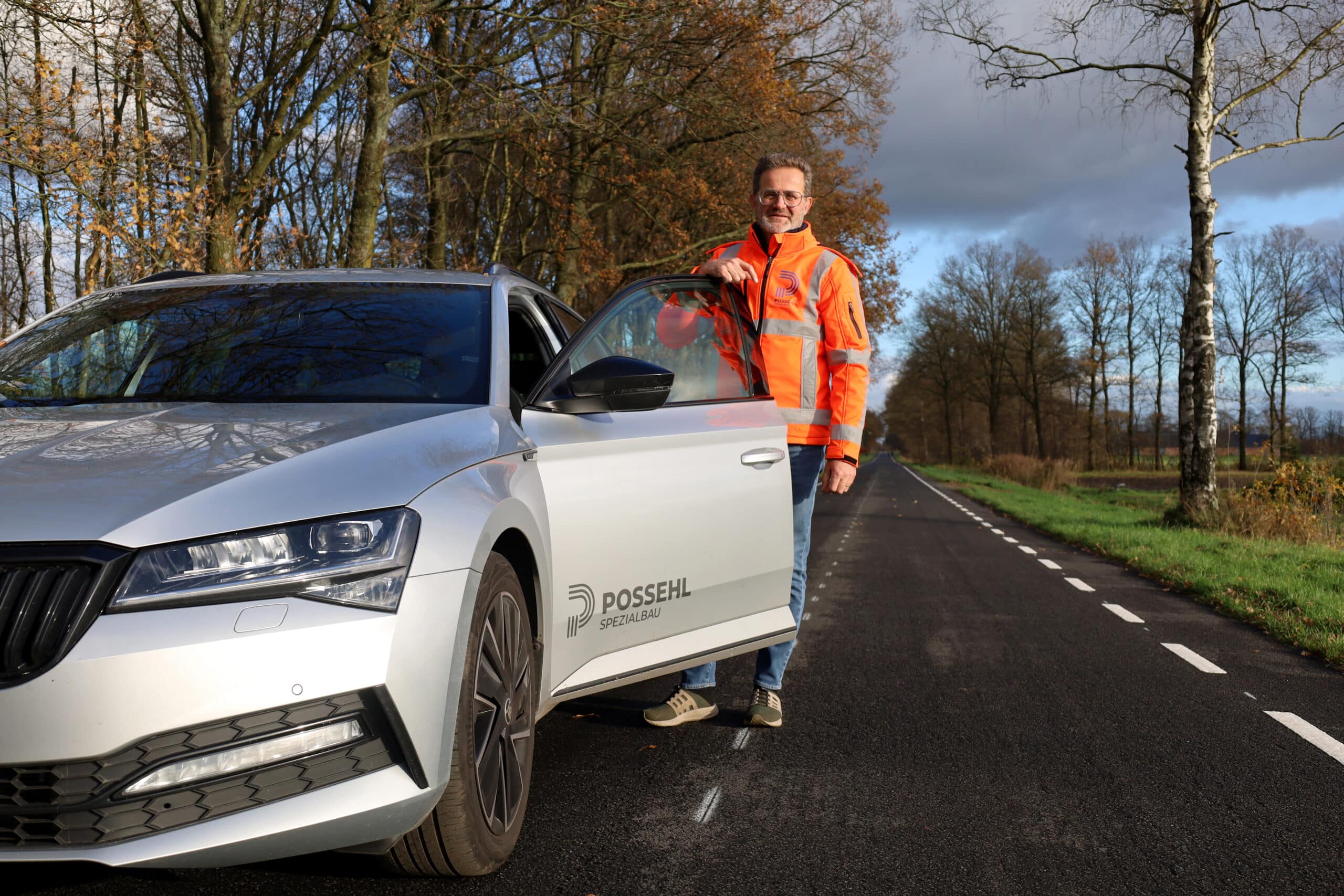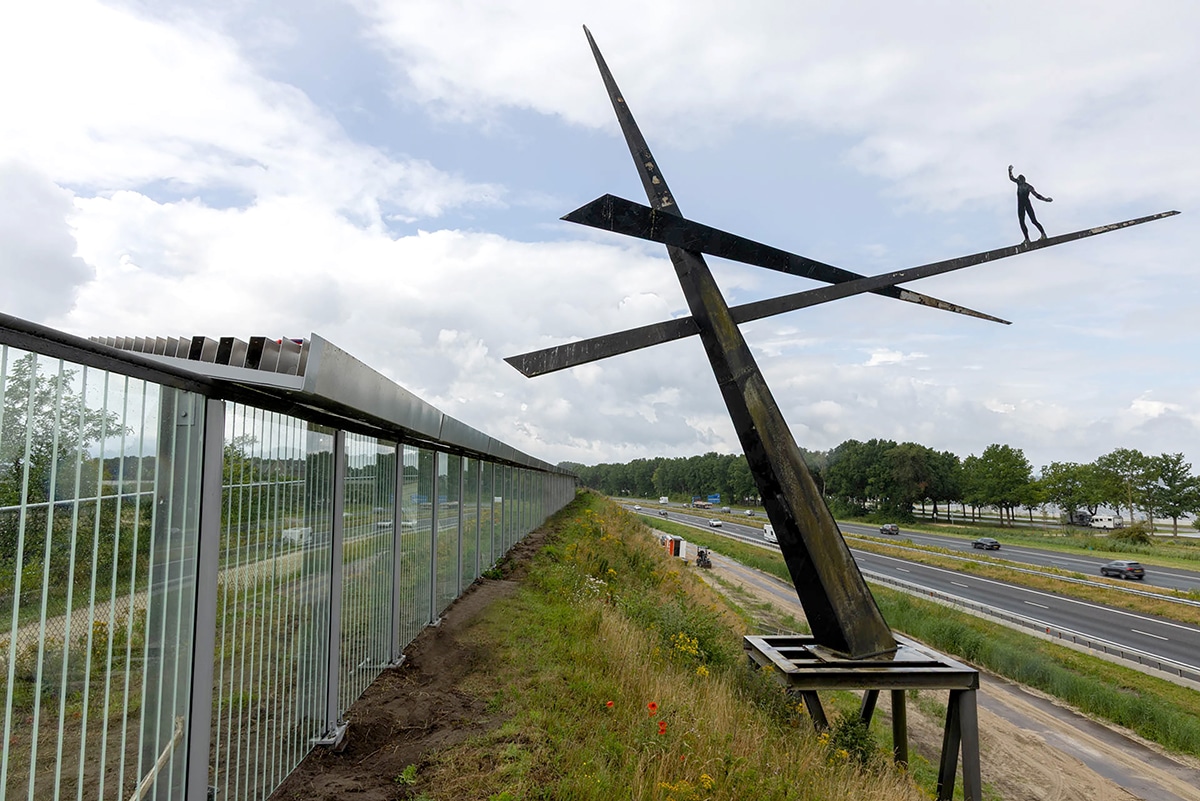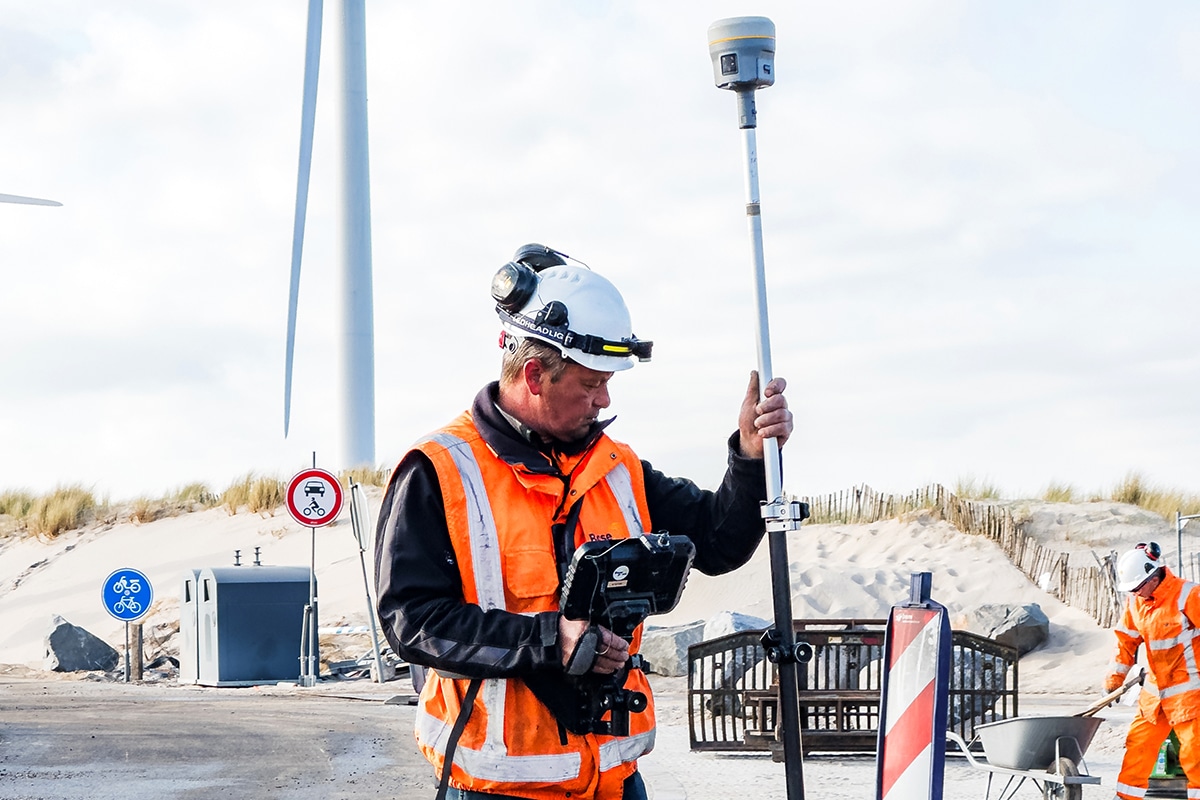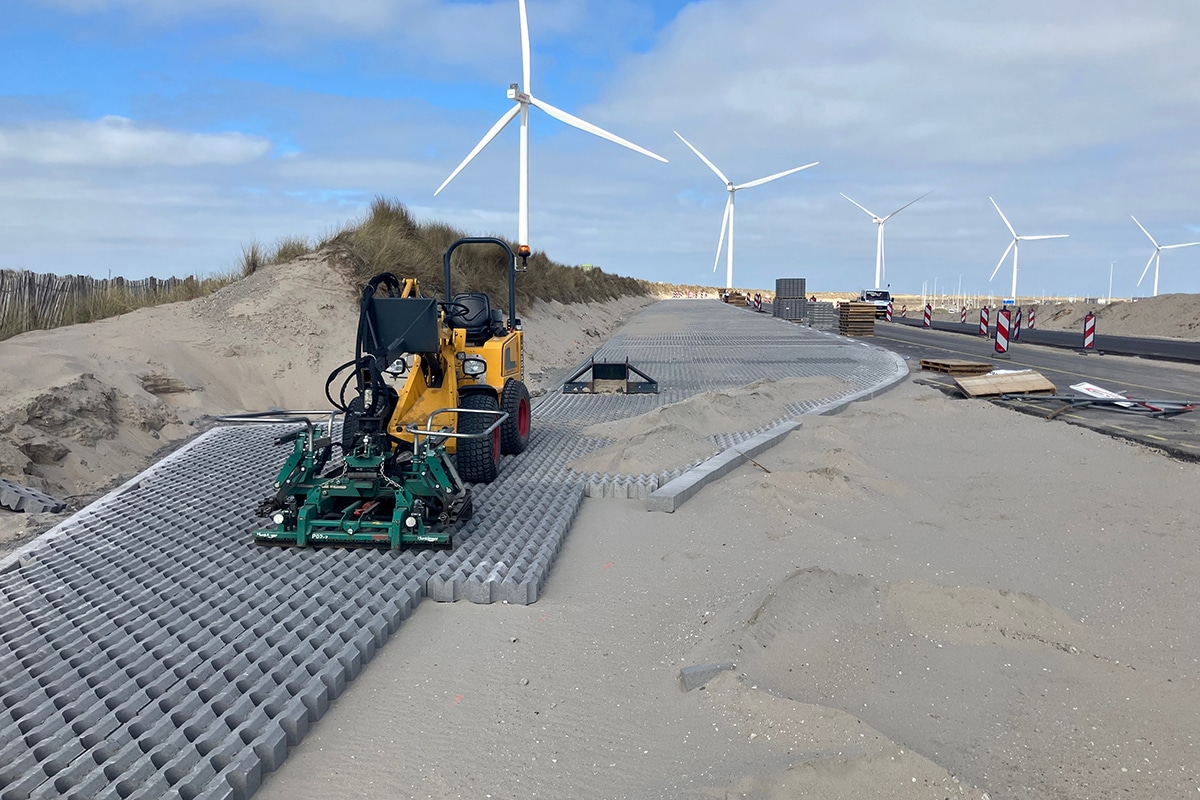
Geotechnical soil investigation by local specialist
Ever since the first phase of the widening of the A1 motorway, VWB Het Veldwerkbureau has been used by Heijmans for geotechnical soil investigations. The company not only has its roots in nearby Deventer, but is also able to respond flexibly to ad hoc work. In addition, the enthusiasm for the profession of the team at VWB Het Veldwerkbureau is second to none, according to project leader Rolf Smit.
VWB is responsible for part of the geotechnical soil testing on the A1. "In the first phase, we worked mostly on weekends and nights," says Rolf. "We also spent a day on standby during the dismantling of a German World War II V1 bomb that was found tightly along the A1. If it came to an on-site detonation during that dismantling, it was our job to do an immediate geotechnical investigation because of potential settlement under the A1. In the end, it all worked out well and the bomb was dismantled neatly and did not explode."

Switching between projects
On the A1 between Apeldoorn and Twello, VWB Bodem's scope was even larger. "We carried out geotechnical soil investigations at noise barriers, engineering structures, on the surrounding road network, on the approach and exit routes, during the installation of gantries, etc. All in all, quite an extensive job," according to Rolf. VWB Soil was regularly active on the project until the end of December 2023. "Surely the biggest challenge was being able to scale quickly between projects. Sometimes we didn't hear until the afternoon that some probing work could be done at night due to unforeseen situations during the day. We also had nights when we had to scale up considerably. That takes something out of your staff," Rolf acknowledges. "We are lucky to have employees who understand their profession and genuinely find the work interesting and enjoyable. That makes it possible for us as a company to make a difference. Even with ad hoc work."
Hardness of the soil
Another challenge in this project, according to Rolf, was the hardness of the soil in some locations, especially on the Enter, Rijssen and Azelo sides. "To reach the desired final depth, a casing was first installed. This prevented the CPT pen from failing at a force of sometimes up to 18 tons." Furthermore, Rolf praises the cooperation with Heijmans. "They have their act together and, like us, place great value on safety and sustainability." The Fieldwork Office uses Euro 6 CPT vehicles, expects to put an electric midirup into service later this year, and always tries to cluster as much CPT work as possible. "That way we keep transport movements and thus CO2 emissions down. Often the CPT truck would stay behind on site and our CPT master would drive back and forth in a passenger car. All in all, a great project to work on," Rolf concludes.




